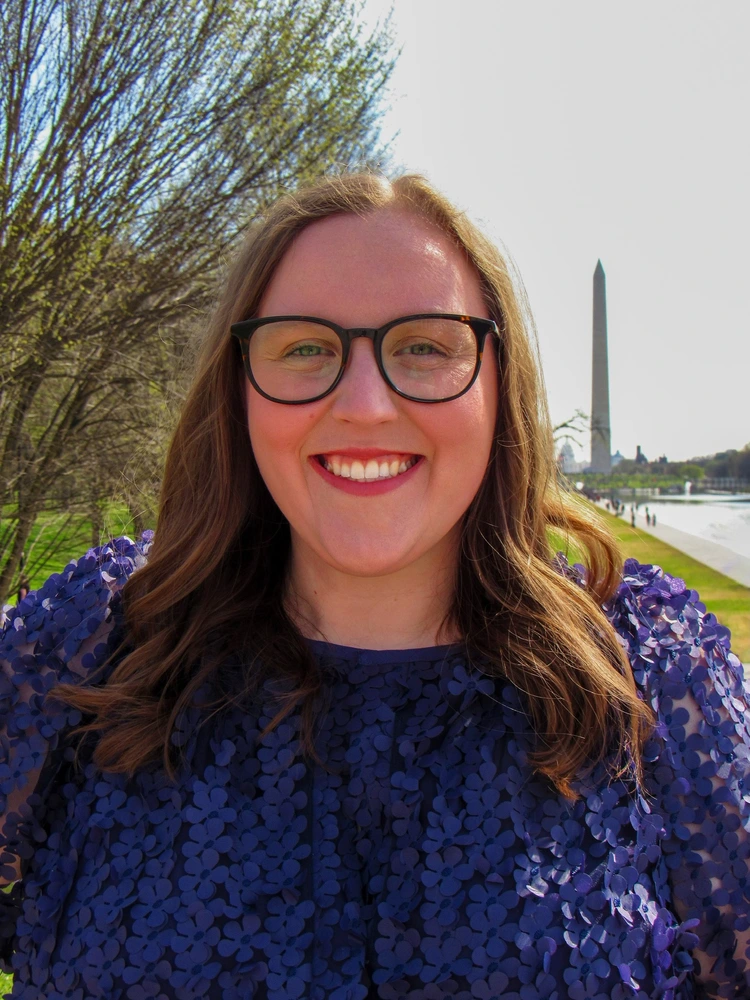
Meet Ljubica Basica (BA,'18, history and political science; MBA,'23), a project manager at Google with Mandiant Cybersecurity Consulting. Her journey after graduating with a BA in history and political science led her from working in government, to completing her MBA and now working in technology. She said the critical thinking and analytical skills she learned as a history major have been essential for tackling complex cybersecurity projects with their consultants. Read on for a Q&A with Basica to learn more about her career.
Why did you decide to pursue a degree in history?
My fascination with history began early, fueled by a desire to understand the present through the past. AP US History ignited a particular passion for American history, and my love of reading made it a natural strength. While political science was my primary focus at the University of Illinois, driven by my interest in government, adding history as a second major was an easy choice. The synergy between these disciplines enriched my understanding of both, creating a well-rounded and interconnected educational experience.
Did you pursue higher education after undergrad?
I ended up earning my MBA through the Gies College of Business iMBA Program. While not directly related to my history degree, I feel like my undergraduate studies prepared me to be a critical thinker and use a “liberal arts lens” when it came to business problems. I felt well-prepared, even though some of the subjects felt a bit out of my depth such as accounting or economics, to take on the challenges of a business degree and bring the mindset of my liberal arts degree to each of my classes and groups I was a part of. The ability to analyze disparate, difficult, and sometimes seemingly unrelated concepts in a business challenge are exactly what students in the History Department at the University of Illinois tackle every day and I am grateful that I was able to apply these skills in my advanced degree.
What was your first job after college?
My first job after graduating was as a staff assistant in the Executive Office of the President in a Management Office. An entry level role, I was able to learn from career government officials how the government operates from access control and travel to the budget we were appropriated on an annual basis from Congress and how federal spending works within an agency. It was a dream job, and I am glad I had the chance to serve my country in a public service role for my first few years after college.
What is your current career and how does your degree in history inform your work?
It's interesting how my history degree has proven so valuable in my role as a project manager at Google with our Mandiant Consulting organization. Day in and day out, the critical thinking and analytical skills I sharpened during my history studies are essential for tackling complex cybersecurity projects with our consultants. Just like researching and writing history papers, I'm constantly analyzing data to help keep our consultants on track and drive our projects to completion. Plus, the overall time management, organization, and stakeholder communication skills I learned at the University of Illinois have been crucial for my success in this fast-paced environment.
What do you enjoy about your work?
The most fulfilling aspect of my role is facilitating collaboration between diverse stakeholders, both within Google and with our clients. As a non-technical project manager in cybersecurity consulting, I thrive on bridging the communication gap between technical experts and non-technical stakeholders. In an era where cybersecurity is paramount to national security, I find immense satisfaction in supporting our consulting teams as they proactively prepare, remediate, and protect businesses and governments from evolving cyber threats, mirroring the importance of my previous public service.
What does a typical workday look like for you? What is the most interesting aspect of your job?
One thing's for sure: boredom is never an option in my role. My days are a whirlwind of activity, from client emails and project kickoffs to helping shape Project Management Office (PMO) strategy and refining our processes. While I leave the cybersecurity trenches to our expert delivery teams, I take pride in being the engine that keeps our projects running smoothly, ensuring the business side is always in top form.
What advice do you have for students interested in pursuing work in your field?
A common worry among history majors is the perceived disconnect between their degree and corporate careers. However, the key is understanding how to translate academic skills into professional assets. Though I'm not writing formal research papers, I routinely synthesize data to create impactful stakeholder communications, a direct application of my research abilities. Similarly, organizing complex project plans draws upon the organizational and presentation skills cultivated in history. For students seeking to bridge this gap and upskill, I recommend exploring free certifications, Coursera, and the PMP certification if you’re interested specifically in project management!
What is your proudest achievement?
While I'm still at the beginning of my professional journey, a major highlight recently was successfully obtaining three challenging certifications last year: Google Cloud Digital Leader, Prosci Change Management Practitioner, and PMP. Balancing these rigorous studies with my workload was a significant hurdle. Given my history with standardized tests, exceeding expectations on the PMP, with above-target results in two domains and meeting target in the third, represented a significant personal and professional triumph out of these three certifications.